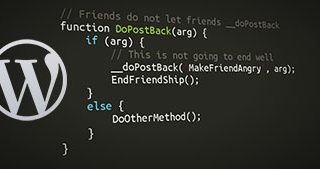
Sometimes everything in life isn’t going as you expect it. And often, the most frustrating thing is when you can’t clearly see the reason why it happens so. Or alternatively, you might be stuck, and you don’t know how to move towards the life you always wanted. Or you keep failing over and over again. So, how do you spot exactly where it all goes wrong? How do you keep a more productive pace all the time? And how do you effectively track your journey to success? Turns out, journaling is an effective tool for being more productive both on a daily basis and in the long-term period. This useful self-reflection technique came from psychotherapy to personal coaching, and now it’s a habit of many people throughout the world. So, how journaling can help you ride the wave of success all the time? Let’s find out.
What Is Journaling and Why You Should Try It
In mental health therapy, therapists use journaling to help their patients treat eating disorders, OCD, depression, addiction, relationship problems, and other issues. It is an effective tool for maintaining a satisfying emotional state when the therapist is not around. After some time of regular journaling, patients found themselves feeling a lot better. Some of them even got rid of the problem completely. Likewise, experts have found that writing exercises like these help moving towards success.
Have you ever found yourself so lost in the daily routine that you felt overwhelmed by something, but didn’t know about what exactly? Have you ever found tough to talk about feelings because you weren’t even sure what you were feeling? Don’t worry, this happens with other people all the time. That’s just the way our brains work – they have to push something to the back of your mind to focus on today’s agenda. Yet, while you’re focused on details, you lost the entire view on the picture of your life. In this regard, journaling helps you structure the important thoughts, and keep them on the paper to track your way to the goals. You can also effectively analyze, make corrections, and shape a better way to do something important for you. Here’s how journaling can help you:
- practice reflection and gratitude
- help you focus and ascertain your thoughts
- understand your emotions
- prioritize
- manage time
- discern obstacles
- stay efficient
- release your creative genius
- gain control over your life
- regulate emotions
- work through conflicts
- maintain clarity
- improve the overall quality of life.
As you are getting used to writing down your thoughts and feelings, you won’t be afraid to stay alone with your thoughts anymore. You will stop worrying about the future or regret about the past too much. Journaling also proved to open the sources of creativity, ignite personal growth, increase the feeling of power and control over one’s life. Now, if this thing works just like a magic wand, why don’t we look closer at how you can start journaling and make it work for you.
Journaling Techniques for Increasing Productivity

The Ultimate Writing Productivity Resource
It’s difficult to start doing anything that you don’t know how to do. That said, you can start journaling and drop it after a day or two because you are simply not sure whether you do it right or wrong. You will expect the results too soon and then feel disappointed if the 5-minute diary-writing thing won’t help you change your life the next day. Hold on. Just like any other type of therapy, journaling has its rules. Kind of like a certain procedure you have to maintain to see the improvement.
To really see the productivity improvement after journaling, you need to focus on the areas that you want to be more satisfied with. With this in mind, you can use quite a few techniques to see exact points that keep you from being successful in this area, as well as come up with ways to overcome these obstacles and things to do to move forward more effectively. You can either try one technique or a few ones from the list below, it’s up to you. Anyway, the advice is to try various approaches and keep going with ones that work best for you. Here’s how you can journal for therapy and life improvement.
Write about:
- How you feel
- What happened during the day
- Letters you won’t send (also – letters to yourself)
- Answer your own questions. Understand the underlying logical ties and try to discern what’s going on in your head. Questions could be like “Is there a fear that’s holding me back right now?”, “Do I fixate on any part of my body?”, “Why am I feeling the anxiety?”, and so on.
- Sentence Stems – these are prepped beginnings of meaningful sentences, such as “I have to think more deeply about…”, “I really admire the way…”, “My happiest memory is…”
- List of 100 – these could be anything meaningful like “100 reasons why I love myself”, “100 things why I’m grateful”, “100 things that make me happy”
- Write a log of successes every day
- If there’s something you are struggling with or an event that’s disturbing you, write about it in the third person.
- Start writing about where you are in your life at this moment.
- A daily list of things you appreciate in your life right now
Another important part of journaling therapy is to write after you write. Let us explain. It’s important not just to get rid of thoughts racing in your head by writing them down in a journal. Instead, journaling should help you increase your productivity by better understanding yourself. That’s why it’s compulsory to go back and read things you wrote. After you read them, you should make conclusions, notice important insights, patterns, etc., and ideally – come up with a better course of action.
When you write on the same issue the next time, try to go deeper. Examine the details of why something happens in your life exactly as it does. Study your thoughts, worries, feelings as closely as possible. This way, you’ll be able to understand yourself so much better and to overcome situations that might have been hanging or kept coming around for years and years.
Journaling for Success: Secret Tips

3 Reasons Writing Is Great for Your Mental Health
You may be too overwhelmed and charged after your day at work so you might feel that you don’t have what to write about. However, it’s not true. Usually, once you start it, you’ll be surprised to find that you can’t stop writing. To get into this state of flow, you necessarily need to relax. You can take a bath with aromatic oils and salt, slowly massage your feet and hands, turn up your favorite music, dance, sing, run, eat whatever you like. You can meditate if you’ve been practicing. A walk around the block can help as well since such monotonous movement tends to put you in a meditation-like state. Watch an old movie and cuddle up in your bed. When you’ve done with relaxation, you need to find a place where you feel safe and no one distracts you. Then, most likely, once you take a pen and a journal in your hand, the thoughts will flow by themselves.
Important to mention – journaling is not strictly about writing! It’s about expressing yourself, organizing thoughts, and understanding feelings, so feel free to incorporate drawing, scrapbooking, doodling, and mind mapping.
Another thing that might stop you on the way to self-improvement journaling is your self-criticism. Just let go of all the judgement and fear of judgement. Think of your journal as of a letter to a trusted friend who will always be on your side and who expects to hear from you to cheer you up and give valuable advice. Find it hard to maintain a storyline? It’s okay, your own journaling should not have a specific genre or style. Just jot down your emotions for today in bullet points. This approach also makes it easier to track the successful and inefficient tendencies, as well as spot the things you want to avoid.
You’ll also be more familiar with your journal if you make it a part of your daily routine. You can write a plan and then make regular check-ins after you complete a step from it. Also, always journal when you feel overly emotional, especially when it’s about negative emotions – anger, sadness, disappointment, grief. This helps you not to do something you’ll regret later. When you calm down, write what you think what triggered that feeling, and how you can overcome it.
A great recommendation is to keep one journal for work-related issues and one for self-reflection for easier organization of different goals. It is also not necessary to keep it on the paper – you can record your voice or type it on the smartphone – journaling should be comfortable for you to maintain!
If you maintain your journaling practice on a regular basis, you’ll start noticing how productive you really are and how much better you’re becoming day after day, especially after you analyze your writing and track successes. You’ll focus more on what you can do better and learn how to deal with obstacles. You won’t feel stuck in one place for months and years anymore.





